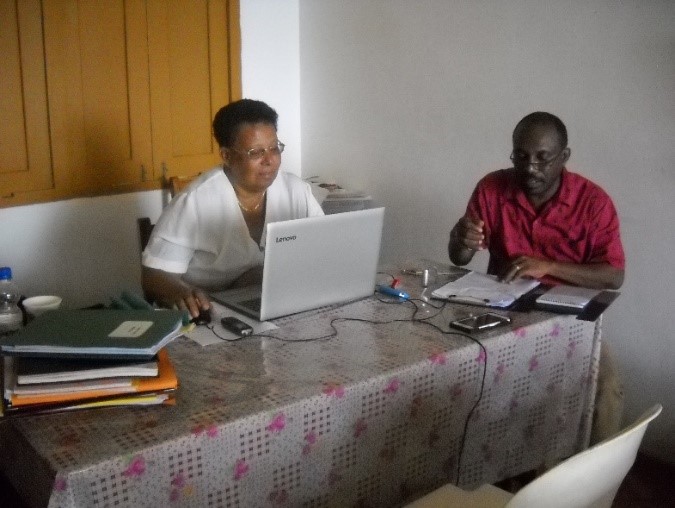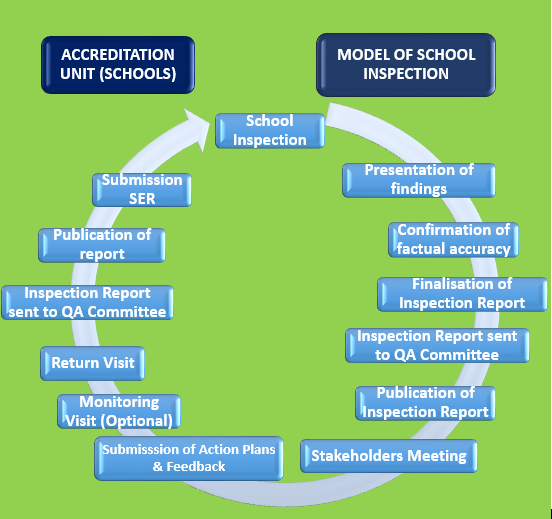What does "accreditation" mean?
By Noella Baker
Principal Standards Setting Officer, SQA
Accreditation is a vital part of quality assurance of any system, it is, in fact a method of External Quality Assurance (EQA). It gives an indication of compliance of education and training providers to set criteria, which in turn shows that they have healthy and efficient internal quality assurance systems in place. It is the Seychelles Qualifications Authority’s (SQA) responsibility to evaluate tertiary education and training providers and their programmes.
According to the SQA Act 2021 “accreditation” is a “process of assessment and review which enables a person, a tertiary education and training provider, or a programme of education and training to be recognised and certified for a specified period of time by the Authority as meeting and conforming to appropriate standards of quality set by the Authority”.
There are two forms of accreditation “Institutional” and “Programmatic”; currently two Units within the SQA offer accreditation services.
Institutional Accreditation Unit
This Unit evaluates Tertiary education and training providers or institutions to determine whether they meet standards for educational quality set by the SQA. The institutional accreditation process is a comprehensive evaluation of the institution and its academic and administrative effectiveness, with particular focus on its Internal Quality Assurance (IQA) system. The evaluation of the quality of the provider focuses on the overall policies and practices of the institution and how these impact on the quality of programmes being offered.
The definition of Institutional Accreditation, according to the SQA Act 2021 is “recognition status granted to a provider by the Authority for a stipulated period of time after an evaluation through self-assessment and external review indicates that it meets or exceeds established standards for educational quality set by the Authority”. There are three possible outcomes in relation to institutional accreditation, in Seychelles; if an institution is:
accredited – the tertiary education and training provider meets all the prescribed national institutional accreditation standards. The provider has sustainable practices; it is fit for purpose; it is consistent, effective and efficient in its practices and therefore, offers value for money. Normally, an institution will be accredited for three to five years after which it needs to re-apply to the SQA for accreditation.
provisionally accredited - the tertiary education and training provider has met the majority of the prescribed national institutional accreditation standards but further work is required to achieve full accreditation status. The provider will undergo Institutional Standards Reassessment following a defined period of provisional accreditation.
not accredited – the tertiary education and training provider does not meet several of the prescribed national institutional accreditation standards. The provider will undergo a new Institutional Standards Assessment following a defined period.
Programme Accreditation Unit
The SQA Act 2021 defines programme accreditation as “recognition status granted to a programme by the Authority for a stipulated period of time after an evaluation by the Authority indicates that it meets standards of quality”.
The Programme Accreditation Unit, approves programmes being offered by education and training providers or institutions, including the Professional Centres and the University of Seychelles. The accreditation of a programme is for a specified period of time, usually five years. A programme must carry a credit value of 120 credits or more to meet the requirement of a qualification on the Seychelles Qualifications Framework (NQF). Both full and part qualifications can be registered on the NQF; however, a short course leading to a part qualification has to carry a minimum of 3 credits (30 notional hours) or more.
There are specific criteria that the programme needs to meet in order to achieve accreditation status. After the evaluation process a programme may be categorised as such:
accredited programme –it has met all the established national quality criteria and therefore, the programme is recognised nationally for five years and can be used for Recognition of Prior learning (RPL).
provisionally accredited programme –it has met the majority of the established national quality criteria, but minor changes are required to achieve full accreditation status.
non-accredited programme –it has not met most of the established national quality criteria, so major changes are required to achieve accreditation status. Qualifications issued on completion of a non-accredited programme will not be recognised by the SQA.


